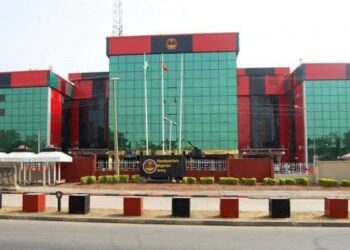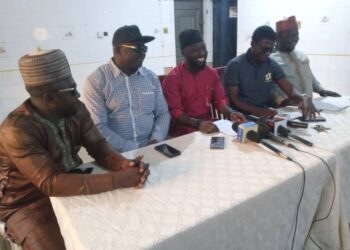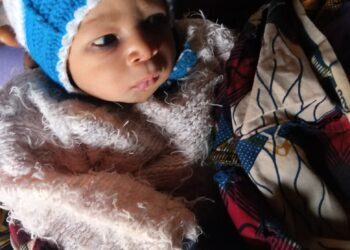The ECOWAS Court has dismissed Nigeria’s preliminary objection to the court’s jurisdiction to determine a human rights violation case involving a Nigerian man on death row for 30 years.
Ogueri is a 72-year-old inmate in a Nigerian maximum-security prison.
Delivering ruling on Thursday in Abuja, Justice Edward Asante, dismissed all the preliminary objections raised by Nigeria challenging the court’s jurisdiction to entertain the case involving Ogueri.
The court held that it had jurisdiction over the matter, noting that the case raised allegations of human rights violations, which fall under its purview according to Article 9(4) of the Court’s Protocol.
It also rejected Nigeria’s submission that the case was statute-barred.
The court held that the three-year time limitation spelled out in Article 9(3) of the Court’s Protocol applied only to cases of extra-contractual liability involving the ECOWAS Community itself, not human rights claims against Member States.
It further held that, although it was not an appellate court to review national courts’ decisions, the court had jurisdiction to determine whether the alleged ill-treatment of Ogueri while in prison breached Nigeria’s international obligations under the African Charter.
The court, however, ruled that the two NGOs, who filed the case, Centre for Peace and Conflict Management in Africa and Rethink Africa Foundation, lacked the legal capacity to bring the case before it.
It explained that the organisations both failed to demonstrate sufficient connection or representative authority to file it.
The court therefore struck them off the case, leaving Ogueri as the sole Applicant.
The News Agency of Nigeria (NAN) reports that the ruling now paves the way for the court to proceed to the hearing of the substantive suit.
The case marked: ECW/CCJ/APP/13/21 was brought by two NlGOs, the Incorporated Trustees of Centre for Peace and Conflict Management in Africa, and Rethink Africa Foundation, on behalf of Ogueri.
The two NGOs who described themselves as the first Applicants in the case, claimed that Ogueri, the second Applicant’s prolonged incarceration under inhuman and degrading conditions had caused his health to significantly deteriorate.
They sought the immediate release of Ogueri who hav spent nearly 30 years on death row, and the payment of a 55-million-naira compensation to him.
They relied on the provisions of the African Charter on Human and Peoples’ Rights.
They alleged that Mr. Ogueri had been subjected to extreme mental torture and degrading treatment in violation of his rights under the African Charter on Human and Peoples’ Rights.
On their part, the Respondent, Federal Republic of Nigeria had however raised several objections arguing that the Court lacked jurisdiction to entertain the case.
Nigeria also contended that the case was inadmissible and statute-barred.
Following. this ruling, the Court will proceed to hear the substantive case concerning Mr Ogueri’s claims of inhuman and degrading treatment in violation of his fundamental rights.
The three-member panel comprised of Justice Ricardo Gonçalves (presiding) and Justice Dupe .Atoki (member).
This Decision marks a significant step in the Community Court of Justice, ECOWAS’ role in upholding human rights standards and addressing alleged human rights violations within its Member States.(NAN)











